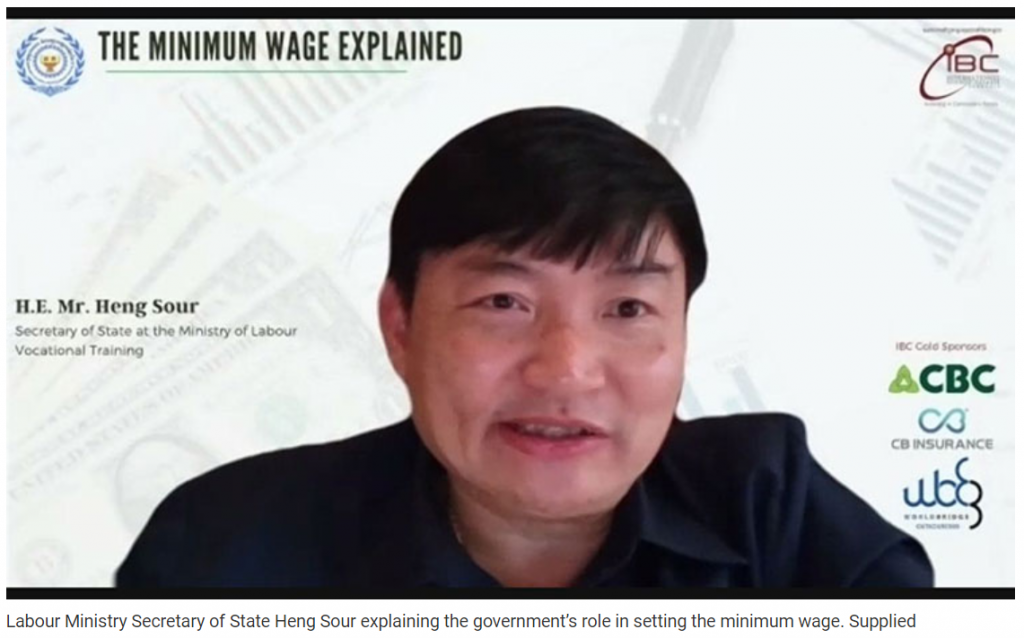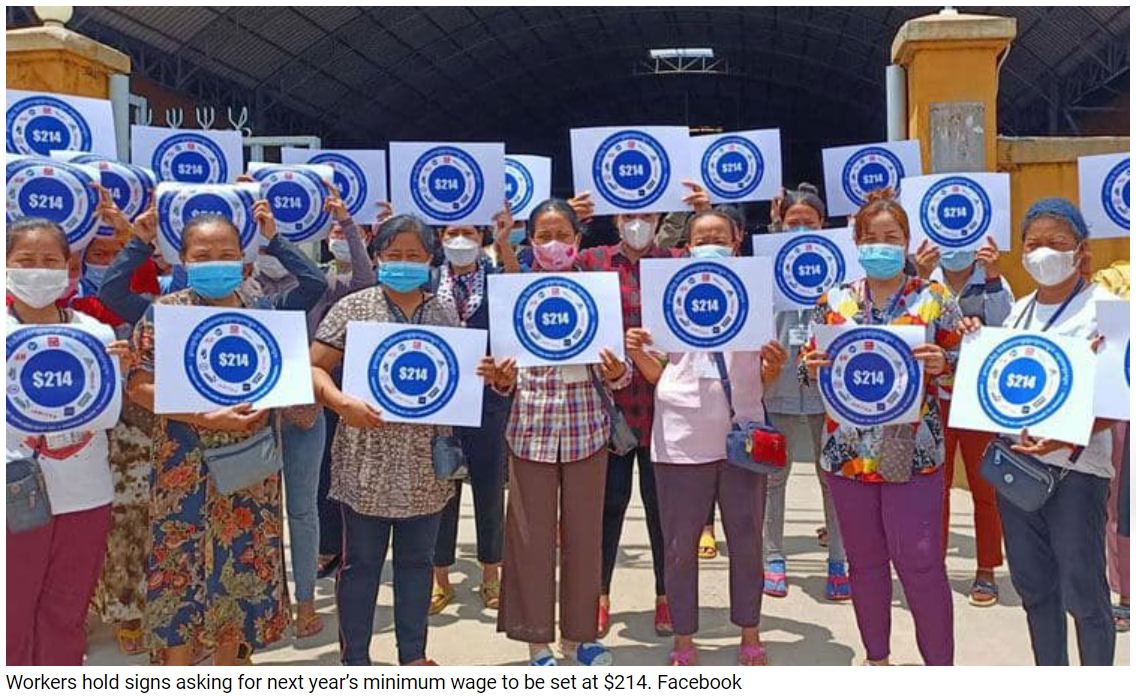Cambodia: Gov’t plans to expand the minimum wage across board
The government is planning to expand minimum wage negotiations to more sectors, probably after the next parliamentary election in 2023, according to Heng Sour, secretary of state at the Ministry of Labour and Vocational Training. Sour has been in charge of the annual talks for nine years.
Speaking at a conference organised by the International Business Chamber of Cambodia, he said it was likely there would still be a single minimum wage, the same as that set for textile, garment, footwear and travel products and bags manufacturers every September.
“We will only have one minimum wage. We will not set it to a regional or sectoral base. That is what we preliminary consider because Cambodia’s geography is not scattered around like some countries and the living conditions and poverty line, whatever sector you are in, is not subject to the poverty line,” he said. “Of course the conditions may be different. For example, if we set the minimum wage to $194 [a month] in the hotel or restaurant [businesses] they don’t necessarily have to pay $194. They may pay $150 because the other $44 can be an accumulation received from the customer, for example from the service charge.”
Sour described the government’s role in annual talks as “just like a sandwich,” saying that if it is seen to lean too much towards workers or businesses the other side will complain.
Unions and company representatives hold talks every July, followed by three-way talks with the government in August. If there is no consensus the National Council of Minimum Wage holds a vote in September.

This year unions proposed an increase to $204, employers wanted $188 while the government suggested $192.
The wage council consists of Labour Ministry officials, factory officials, industry stakeholders, unions and representatives of civil society organisations. This year 45 out of 51 votes were for an increase to $192.
Sour said unions are more astute in pressing their case because they receive advice from the International Labour Organization (ILO). He said they also invoke the brand names of global manufacturers to raise international media coverage in order to get a wage that doesn’t tweak the consciences of international consumers.
The minimum wage has increased by $2 each year for the past three years, from $190 in 2020 to $192 this year and again to $194 from January next year. If Asian Development Bank forecasts are correct, that will not keep pace with inflation. The ADB said consumer prices will rise 2.9 percent this year while wages have risen only 1.05 percent. It said inflation next year will be 2.7 percent while wages will only rise by 1.04 percent.
At the same time, companies should be raking in bigger profits. The ADB said industrial production will rise 7.1 percent in 2021 and 7 percent next year on the back of a rebound in the garments, footwear and travel goods sector.
Sour chose not to answer a question submitted by Khmer Times about how the government and private sector should ensure wages match inflation.
Workers don’t survive on the minimum wage alone. A 2018 report by the ILO found: “There was an increase in overtime work along with the increase in minimum wage, resulting in the rise of final take-home pay in 2017… On average, the base rate of pay makes up only around 65 percent of Cambodian garment workers’ take-home pay, suggesting that elements of pay other than the minimum wage itself are quite significant.”
Sour said Cambodia pays the sixth highest wages among the 10 ASEAN nations.
Source: https://www.khmertimeskh.com/50960318/govt-plans-to-expand-the-minimum-wage-across-board/


 English
English




